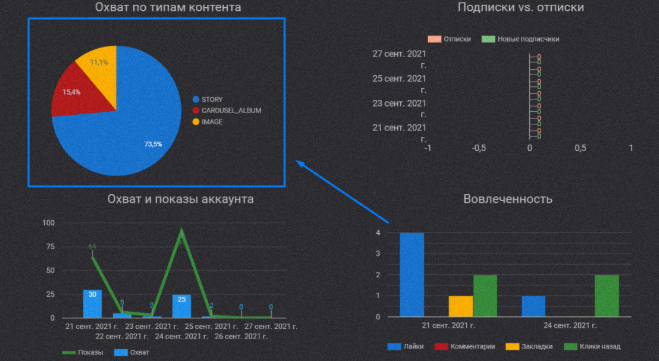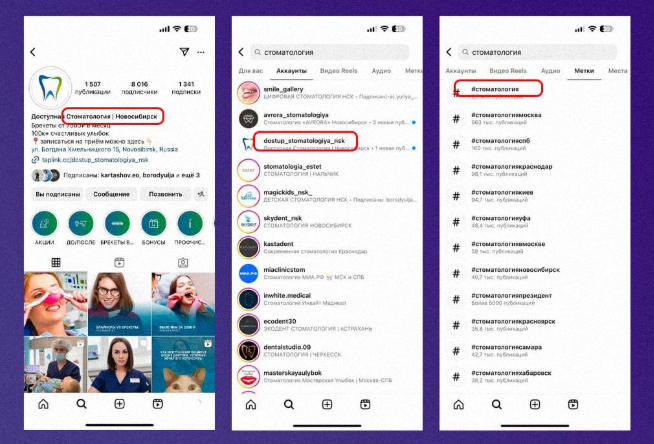
- Product

- Pricing
- Affiliate Program
- Use Cases
- Resource


In marketing, SEO and social media are closely connected. To increase organic traffic and improve brand visibility, you must not only optimize your website but also enhance SEO within social platforms. Just as SEO specialists refine website content to boost rankings, traffic, and conversions, brands should apply similar principles to their content on platforms like Instagram, TikTok, LinkedIn, and YouTube.
Optimizing profiles for search intent is essential. Use relevant keywords in your bios and captions that reflect your brand and audience interests. Clear positioning, consistent visual identity, and links to your website help improve recognition and trust — and also positively influence external SEO.

To make your social media strategy deliver measurable results, you must set clear KPIs. Without them, it’s impossible to evaluate performance or identify areas for improvement.

Don’t rely solely on basic metrics like likes or reach. Focus on indicators that reflect actual SEO impact: content visibility, reach growth, follower growth, engagement rates (comments, shares, saves), link click-through rate, conversion rate, and sales revenue. Also consider customer satisfaction expressed in reviews and ratings, and share of voice — brand mentions and the use of branded hashtags.
Clear KPIs allow you to measure results accurately and adjust your strategy to maximize SEO performance across social platforms.
Adding keywords to social media content increases the likelihood that your posts will appear in search results both inside platforms and externally. Keywords help algorithms understand content topics and show posts to users interested in related products or services.
Business accounts simplify this process thanks to built-in analytics tools. Facebook offers Audience Targeting to analyze user behavior; LinkedIn Marketing Solutions highlights high-performing topics; Instagram provides search suggestions based on trends; TikTok includes keyword research features in Creative Center; Pinterest updates its Trends dashboard; Reddit’s community structure offers real-time interest data. LinkedIn’s ad library also helps analyze competitor keywords.

More users now search directly within social platforms. Effective keyword research starts by exploring how users phrase their queries: check search bars, trending posts, hashtags, and auto-suggest results.
For a more systematic approach, use external keyword and social listening tools such as Google Ads Keyword Planner, Semrush, BuzzSumo, or Mention.
MoreLogin can also support multi-account management for A/B tests and audience segmentation without risking account restrictions — useful for campaigns across regions and platforms.
By combining internal platform tools with external analytics, you can create content that is both engaging and fully optimized for SEO.
Keywords must be used strategically. Select relevant search terms and integrate them naturally into captions and text.

Place primary keywords directly in the post caption rather than in comments — algorithms prioritize caption text for indexing. For video content, verbal keyword mentions improve speech recognition accuracy and help platforms understand video topics.
Avoid keyword stuffing. Excessive repetition harms readability and may be treated as spam. Maintain natural language, use variations, and ensure content stays engaging while still optimized for search.
Backlinks remain a strong trust signal for search engines. When users or external websites link to your social profiles or posts, algorithms interpret this as proof of value, improving search rankings.
It’s not just about the number of links — relevance and proper placement matter. Profile bio links are an underused asset: they help direct traffic to landing pages and track user behavior. Smart link placement supports both visibility and measurable performance.
Social platforms limit character count, formats, and layout options. Effective SEO requires making the most of each available element.
Complete your profile fully, adding relevant keywords to help platforms and search engines understand your topic. Use clear, scannable information. Platforms like Facebook and LinkedIn allow longer descriptions, giving more room for SEO-rich content than Instagram, TikTok, or Pinterest.
Your company name should appear in the username when possible, and keywords should be added to bio fields and descriptions. Location tags strengthen local SEO and help users discover your business more easily.
Prioritize organic growth. Buying followers or likes doesn’t improve SEO — algorithms favor real engagement and authentic interactions.
Social media is an extension of your website, and SEO principles must apply there as well. The better your profiles and content are optimized, the higher their visibility and trust from both users and search engines.